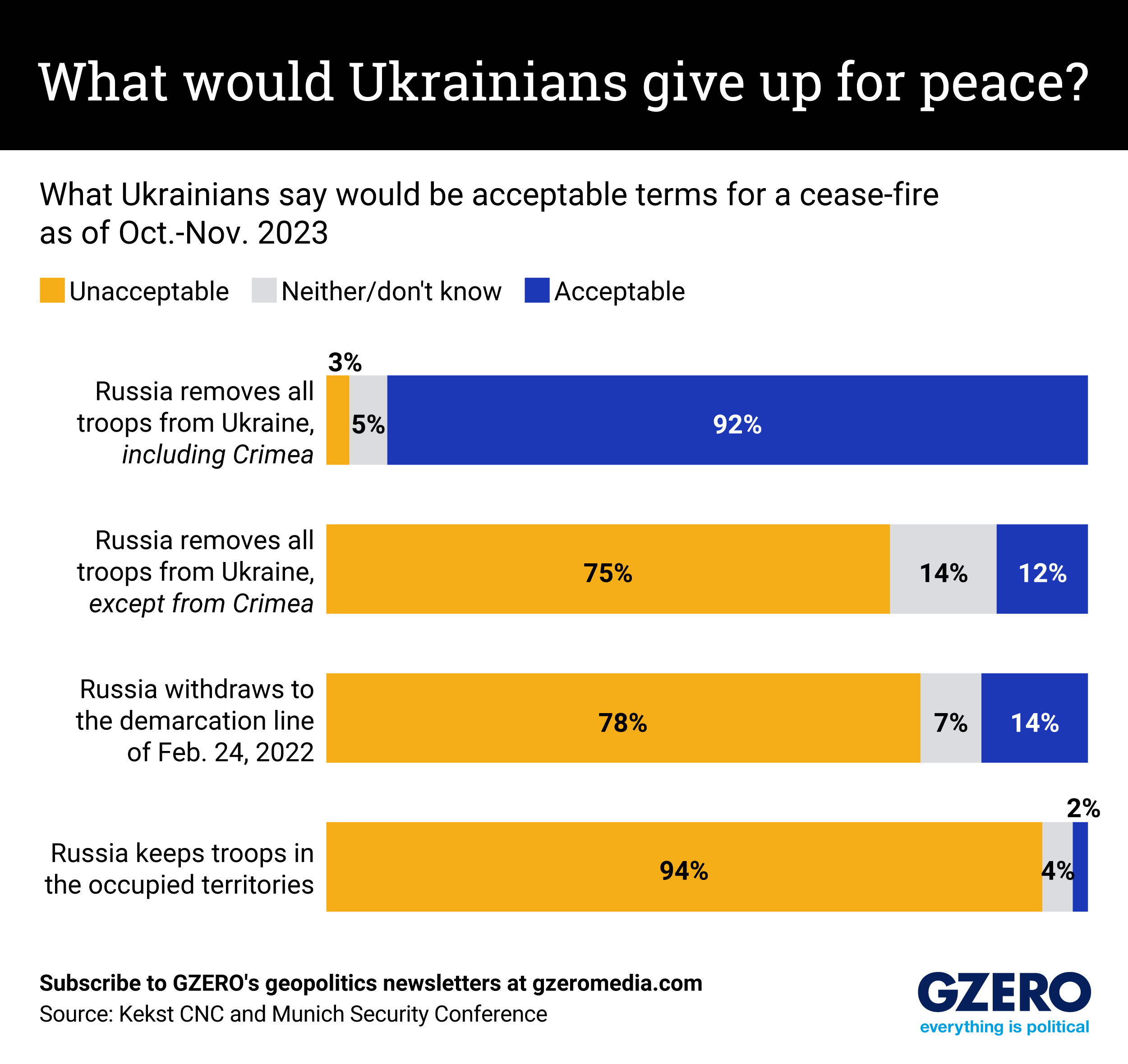February 12, 2024
Ukraine is days away from marking the second anniversary of Russia’s 2022 invasion. The war is largely stalemated, with few changes to the battlefield map in recent months. Ukrainian troops are engaged in brutal trench warfare reminiscent of World War I but with the added nightmare of deadlier modern weaponry and technology. After enjoying strong, steady support from its Western allies in the first year and a half of the war, Kyiv now faces a constant struggle to keep aid flowing in as it runs short on supplies and faces manpower issues. Meanwhile, Russian President Vladimir Putin shows no signs of backing down despite the myriad political, economic, and societal consequences the war has had for Russia.
But none of that is undermining Ukraine’s resolve. New polling from the Munich Security Conference shows that Ukrainians are strongly opposed to any cease-fire framework that would require Kyiv to cede territory to Russia — particularly Crimea, which Moscow annexed in 2014. This suggests that Ukrainians are largely aligned with their government, which has pushed for a peace plan that would see Russia withdraw troops from occupied territories and recognize Ukraine’s 1991 post-Soviet borders. Moscow has scoffed at this proposal.
More For You
As expected, the Supreme Court struck down the bulk of Donald Trump's sweeping “Liberation Day” tariffs as illegal … and almost nothing changed.
Most Popular
What's Good Wednesdays
What’s Good Wednesdays™, February 25, 2026
Sponsored posts
Small businesses at a crossroads
Chris, an Army veteran, started his Walmart journey over 25 years ago as an hourly associate. Today, he manages a Distribution Center and serves as a mentor, helping others navigate their own paths to success. At Walmart, associates have the opportunity to take advantage of the pathways, perks, and pay that come with the job — with or without a college degree. In fact, more than 75% of Walmart management started as hourly associates. Learn more about how over 130,000 associates were promoted into roles of greater responsibility and higher pay in FY25.
Ukraine's President Volodymyr Zelenskiy, Finland's President Alexander Stubb, Estonia’s Prime Minister, President of the European Commission Ursula von der Leyen and other European leaders visit memorial to fallen Ukrainian defenders at the Independent Square on the fourth anniversary of Russia's full-scale invasion, in Kyiv, Ukraine February 24, 2026.
Ukrainian Presidential Press Service/Handout via REUTERS
Somewhere in the Donbas region, Ukrainian soldier Artem Bondarenko says he hasn’t slept through the night in months as he defends Eastern Ukraine.
- YouTube
In the latest episode of Vladimir Putin and Xi Jinping's hit wellness podcast This Authoritarian Life, we learn how positive communication patterns can break negative cycles in our relationships -- especially our relationships with Iran, Syria, Venezuela, and Cuba. #PUPPETREGIME
© 2025 GZERO Media. All Rights Reserved | A Eurasia Group media company.
